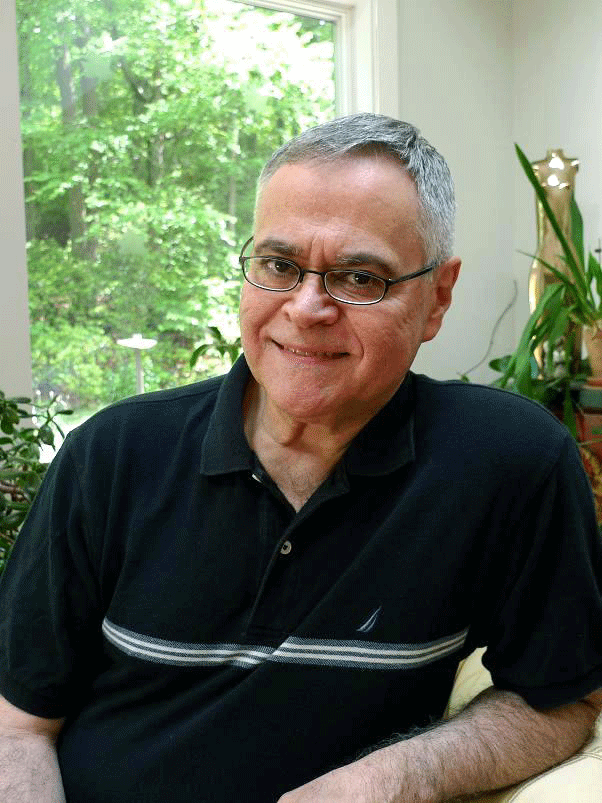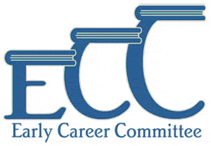
Laurence Tucci, Production Director at Penguin Young Readers | January 31, 2014

What was your first job in children’s publishing? How did you come to your current position in Production?
My first experience working with children’s books was at Henry Holt, where I had been hired to produce four-color adult trade titles. I began working on some juvenile four-color books as well, and gradually assumed responsibility for all juvenile titles. I originally came to work for Penguin as the production manager for the Dutton Adult Trade list and moved into juvenile book production a few months later when the Dutton adult book production was merged into a different division. Two individuals working in juvenile book production gave notice at the same time, and I happily agreed to fill the void.
How long have you worked at Penguin Young Readers?
I will mark my 25th anniversary on February 13, 2014.
What was the first book you worked on at PYR?
No one in Production works on just one book at a time. I do recall working on a Winnie-the-Pooh title very early in the game, though I can’t remember which one.
Can you describe your typical day?
I start each day by reading email, mostly from my Asian printers who begin their work day when ours ends. These emails always present questions to be answered or problems to be resolved. The rest of the day is spent reviewing color proofs and schedules, consulting with members of the art department, meeting with vendor reps, estimating costs, putting out the occasional and inevitable fire, and providing an ever-increasing amount of information to an ever-increasing number of people.
What’s one skill you’ve acquired in your job that you never thought you’d need?
Since I didn’t grow up with the slightest clue that I would become a Production Director (or knowing that such a profession existed or what it was), I would have to say that all of my very specific acquired skills came as a surprise to me. The instinctive knowledge of four-color printing I’ve developed over the years is probably the most exotic and unexpected of my skills and the one that I consider the most rewarding.
How much has Production changed since you started?
Remember that there were no computers in 1972. Type was set in hot metal; mechanicals were made by hand using repro boards, X-ACTO knives, and rubber cement. There wasn’t email, pdf files, or FTP sites, to name just a few of the staples we now take for granted. Technology has unsurprisingly changed virtually every aspect of book production as much as it has changed everything else in our world. Publishing in general has become more like other businesses than it ever was in past decades, and Production has followed along with the flow. There is certainly more efficiency and a greater emphasis on financial matters than there was when I started in the business, as well as considerably shorter schedules and more reprints designed to help keep inventory low. I am not exaggerating when I say that there is a whole lot more one needs to know and do in 2014 than there ever was to know and do in 1972.
What’s the best piece of advice you ever received?
I’m sure it was something really valuable that I ignored and promptly forgot. But the best piece of advice I can pass along comes from an interview given by Mae Questel, the late actress who originated the well-known voice of Betty Boop. When asked in her 89th year how she had managed to live so long, she said, “I learned not to make a big megillah out of every little thing.” Truer words were never spoken.
What is one of the worst mistakes you’ve made? How did you get beyond it?
It was a long time ago, but my ears still get hot when I think of it. I accidentally specified a full cloth case instead of a three piece cloth-and-paper case for a large printing of an adult novel. I saw the advance copies and immediately called the printer to demand an explanation, only to be told that’s what I had ordered. I won’t reveal how many dollars that mistake added to the book, but it was pretty substantial. I had no choice but to go straight to my still fairly new boss and confess my error. He stared at me for a long moment, shrugged, and said, “Don’t sweat it.” Many years later I am still sweating it.
Any funny, interesting, surprising anecdotes (about your own experience or publishing in general) you want to share?
When I was a very young man in the 1970s I worked at Random House on 50th Street and Third Avenue. At the end of one work day I rode the elevator alone down to the street level on my way home. The elevator doors slid open in the lobby to reveal a short and slight little man standing just outside the elevator and blocking my way. Before I could move or step around him the little man launched forward, pressed himself against me, and coughed right in my face. My kneejerk reaction was to shove him away. Unfazed, he walked past me onto the elevator, and I realized as the doors closed that the little man I had just rudely pushed was Truman Capote. A job in publishing may not make you wealthy, but it does afford the opportunity to be coughed on by people more famous than you’re likely to be coughed on working in a bank.
What is your favorite word?
Pizza. It’s my favorite food, too.
What was your favorite book as a child?
I put this question to my mother and older sister and they both answered simultaneously “Little Lulu comics.” I do recall being fascinated with Lulu and the cast of characters that peopled her comic books.
What are you reading now? Or what was the last book you read you really enjoyed?
I am reading Jo Nesbo’s The Leopard. It is a dark and disturbing story about an ingenious serial killer in Norway and the brilliant but troubled alcoholic Oslo police detective hunting him. I’ve come a long way from Little Lulu.







